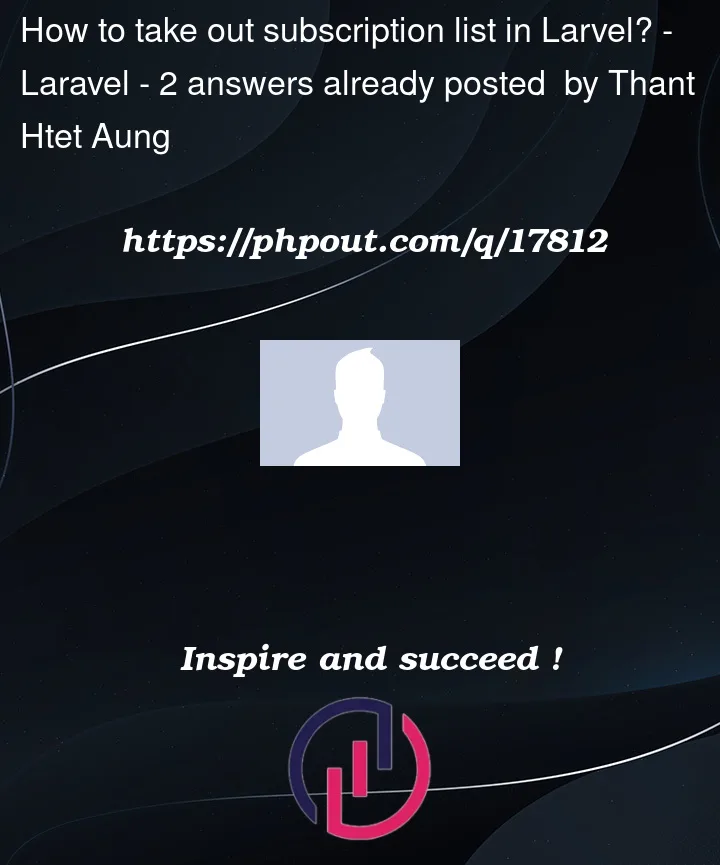I’m creating project with Laravel. I want to pull out user->name from subscription table which also has user_id column in it. I want to show the current user’s subscribers’ name from subscription table. But it shows error:
Property [subs] does not exist on this collection instance
here is my code.
This is from IndexController
public function home() {
$data = User::all();
return view("amvs.index", [
'users' => $data,
]);
}
This is from index.blade.php
<a href="#" class="list-group-item list-group-item-action border rounded-0">Subscriptions</a>
@foreach ($users->subs as $sub)
<span class="ms-2">{{$subs->name}}</span>
@endforeach
This is from user model
public function sub(){
return $this->hasMany('AppModelsSubscription');
}
I didn’t write anything in Subscription model. My subscription table
Schema::create('subscriptions', function (Blueprint $table) {
$table->id();
$table->string('name');
$table->integer('user_id');
$table->timestamps();
});
My user table
Schema::create('users', function (Blueprint $table) {
$table->id();
$table->string('name');
$table->string('email')->unique();
$table->timestamp('email_verified_at')->nullable();
$table->string('password');
$table->rememberToken();
$table->timestamps();
});
I’m a beginner so enlighten me.




2
Answers
First of all, In your controller you should load the subs. That will be better as it will not add extra query for loading the relations. So what you can do is following
you should also change the relationship as hasMany follows the following convention:
As you are pulling all the users you have to first loop through the users first, then you can iterate over subs for each users like below:
The issue is that you’re trying to access a method on an Eloquent Collection which does not have any properties or methods relatated to your
Useror itssubrelationship.Additionally, consider using Eager Loading when accessing relationships, it is more performant and solves the
N+1query problem.Then to access the
Users subs in your view:However, you will want to change your
subscriptionsmigration as theuser_idfield needs to be the sametypeas theidfield on youruserstable.Further questions
For relationships to work, the field
type(string,integeretc.) of theprimaryandforeignkey fieds must be the same. The default primary key in Laravel is theidfield and it has astypeofunsigned big integer. If you define aforeignkey field in a related table and itstypeis anything other thanunsignedBigIntegerthe relationship will fail.foreignIdis simply a helper method provided by Laravel that creates a field with the correcttypeand the requiredforeignkey reference. Previously you had to do that all yourself, for example:The reason for using
first()is that it returns aModelrather than an Eloquent Collection. You’re only interested in oneUser(the authenticatedUser) so it is more efficient to usefirst()rather thanget()as you don’t then need to loop or extract the first item in the collection.You might want to spend some free time watching the Laravel from Scratch series. It is really detailed and covers lots of common scenarios.